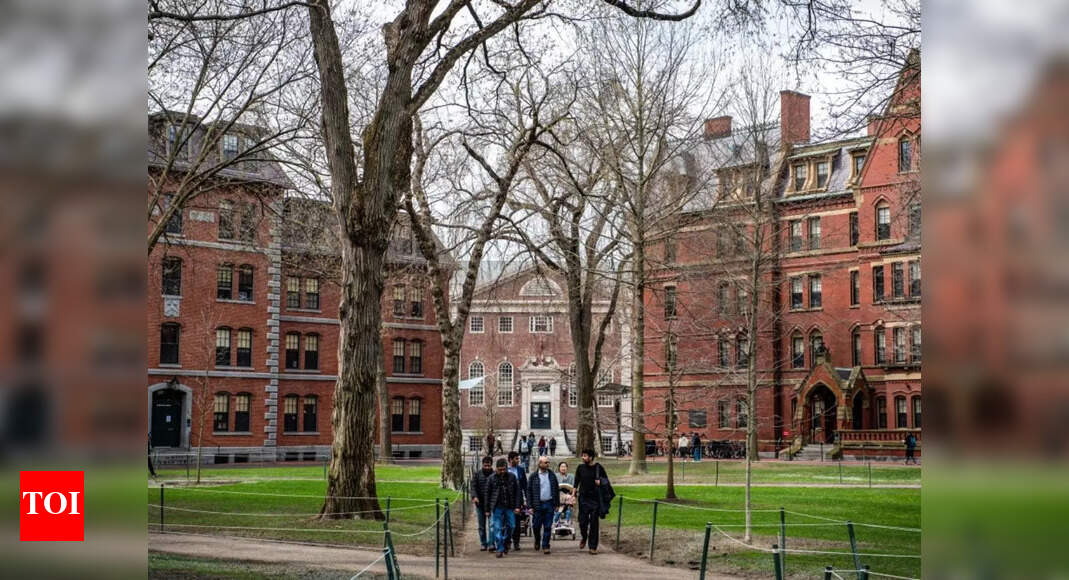Harvard’s Faculty of Arts and Sciences faces a $1.95M cut in Arts and Humanities spending after Trump’s federal funding freeze and higher endowment taxes. With $2.7B frozen and $1B annual losses projected, research and hiring are hit hard. Harvard explores st…
Why it matters
- The reduction in funding could severely impact research initiatives and faculty hiring within the arts and humanities sectors.
- Harvard's endowment, a crucial financial resource for the institution, is experiencing unprecedented challenges due to federal policies and taxation.
- The current financial landscape raises questions about the future of arts and humanities education at one of the world's leading universities.
In a striking development, Harvard University's Faculty of Arts and Sciences is confronting a substantial $1.95 million decrease in its funding allocation for the arts and humanities divisions. This financial setback arises from a combination of President Donald Trump’s federal funding freeze and increased taxes on the university’s endowment. As a result, Harvard is now facing a daunting scenario where approximately $2.7 billion is locked away, coupled with projected annual losses amounting to $1 billion.
The ramifications of these financial constraints are particularly pronounced in research and faculty recruitment, two areas that are essential for the vitality of academic programs. With the freeze on federal funding, many ongoing and prospective research projects may face delays or even cancellations, undermining the innovative work that has long been a hallmark of Harvard's academic reputation. This situation poses a significant challenge not only to current students and faculty but also to future generations who might benefit from the rich academic environment that Harvard has historically provided.
The Faculty of Arts and Sciences, which encompasses a diverse range of disciplines, has been particularly hard-hit. Many programs rely heavily on both federal grants and the university's endowment for funding. With the federal funding freeze continuing, the potential for new grants diminishes, leaving faculty and researchers in a precarious position. Harvard’s exploration of alternative funding strategies is underway, but the urgency of the situation has intensified as faculty members express concerns about job security and program viability.
In response to the looming financial challenges, Harvard is actively seeking ways to mitigate the impact of these cuts. Discussions are ongoing about potential budget reallocations and the pursuit of private donations to cushion the blow. However, as the university navigates through this turbulent financial landscape, the focus on preserving the integrity of its arts and humanities programs remains a critical priority.
The cuts come at a time when the value of arts and humanities education is being questioned in the broader context of higher education funding. Advocates for the arts argue that these programs are essential not only for fostering critical thinking and creativity but also for contributing to a well-rounded education that prepares students for diverse career paths. The potential reduction in resources for these fields raises alarms about the long-term implications for students and society at large, especially in a world that increasingly values interdisciplinary approaches to problem-solving.
Harvard's current financial predicament reflects a larger trend affecting many institutions of higher learning across the United States, where federal funding for education has been a contentious issue. As universities grapple with budget cuts and changing political climates, the arts and humanities often find themselves in precarious positions, competing for funding against STEM disciplines that are frequently prioritized in public and private funding initiatives. This trend raises critical questions about the priorities of educational institutions and the societal value placed on arts and humanities education.
As Harvard continues to adapt to these challenges, the university community remains hopeful that innovative solutions can be developed to sustain the arts and humanities. The outcome of this situation is likely to set a precedent for how similar institutions respond to funding crises in the future. The need for a robust and thriving arts and humanities sector is more pressing than ever, and how Harvard navigates this financial storm may influence broader conversations about the role of these disciplines in higher education and beyond.











